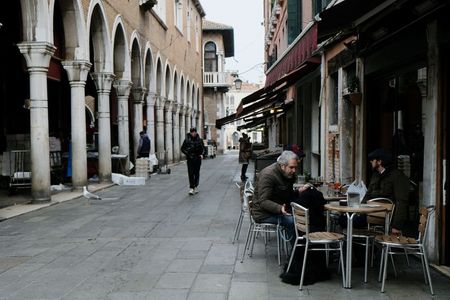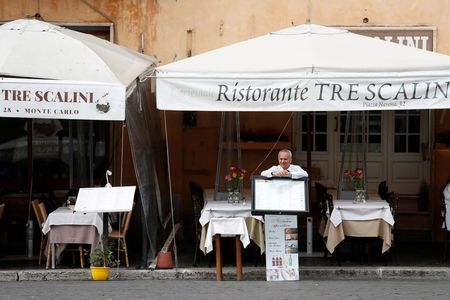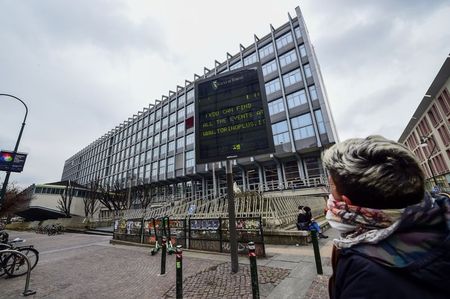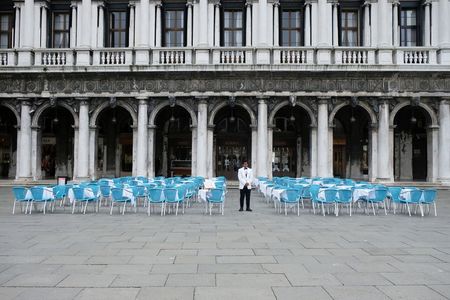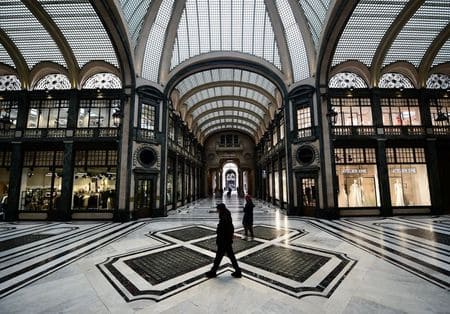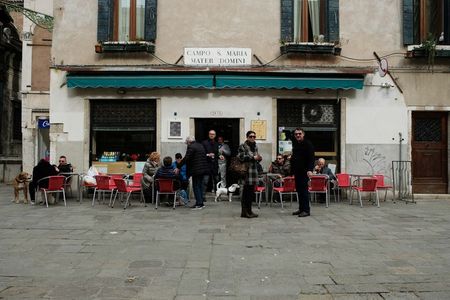By Silvia Aloisi and Emilio Parodi
MILAN (Reuters) – A day after their government ordered a limit on public gatherings and recommended that people avoid shaking hands to limit the spread of the coronavirus, normally sociable Italians have been grappling with new habits.
At Iginio Massari, a well-known cafe in central Milan, customers no longer take their morning cappuccino at the counter but have to wait to be served at a table, while keeping a distance of at least a meter from other customers and staff.
Yet further along the street, there are plenty of people drinking coffee and eating cornettos at the bar.
“I know there’s an order and they could fine me 1,500 euros ($1,680) but I’m still serving coffee at the bar,” said one barista who did not want to give his name. “We have so few customers anyway that they’re usually on their own.
“Normally we get through 7-8 kilos of coffee in a morning and now if we get to three we’re happy. If it keeps up like this, we’ll have to close.”
It is a small sign of how people are still coming to grips with the crisis in Italy, so far Europe’s worst affected country where more than 100 deaths have been attributed to the virus since it first emerged in a town near Milan two weeks ago.
Already the virus has spread from the north, with cases appearing in the capital Rome and as far south as Sicily.
“We are all worried but without alarmism or hysteria. Clearly we’re trying to understand the situation and we’re trying to read between the lines,” said Rome resident Fiamma Volpini.
Late on Wednesday, the government announced a series of measures aimed at limiting contact between people in a bid to slow the spread of the virus.
As well as closing schools and universities, suspending large public events and ordering sports events to be held behind closed doors, the decree recommends that people do not shake hands or hug each other and that they maintain a distance of at least one meter.
In churches, worshippers are discouraged from the traditional handshake as a sign of peace at mass and kissing on the cheek, an everyday exchange for people of every generation in Italy, has become a delicate question of contagion etiquette.
“I’ve just met one of my neighbors and I kissed him but yesterday I went to greet one of my friends with a kiss on the cheek and she stopped me saying, ‘are you mad?'” said one woman in Milan who did not want to give her name.
The change has been especially striking in Milan, Italy’s financial capital, which until two weeks ago was basking in its image as the dynamic exception to the country’s decades-long economic malaise.
Now trams and underground trains are much emptier than normal, museums are empty and shopkeepers sit waiting for customers.
Although the city’s famed cathedral has re-opened to visitors, it is admitting only 10 at a time.
“But that is not really the problem, as there is no one inside anyway,” a security guard at the doors said.
(Additional reporting by Emily Roe, Valentina Za; Writing by James Mackenzie; Editing by Nick Macfie)


